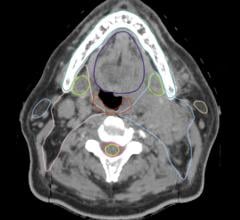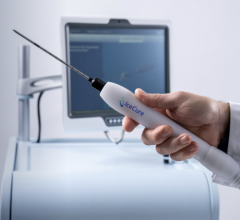
May 17, 2019 — Computed tomography (CT) of the head uses special X-ray equipment to help assess head injuries, dizziness and other symptoms of the brain. A new study, published online in Current Problems in Diagnostic Radiology,1 evaluates the complexity of patients undergoing head-CT examinations.
The study was led by lead author Melissa M. Chen, M.D., a clinical neuroradiologist at the University of Texas MD Anderson Cancer Center. Chen and her co-investigators used 2017 Medicare claims data to identify the most common site for performing head-CT examinations. After finding the most common site was emergency departments (ED), the authors classified the data by the complexity of the patient's ED visit. The visits were analyzed by the level of complexity (1-least complex to 5-most complex patient) as well as the diagnosis reported on the billed head CT claims.
"Of the 6,363,404 head-CT exams in 2017, 56.1 percent were performed in the ED and 70 percent of non-contrast exams performed in the ED were ordered in the most complex patient encounters (level 5 visits)," said Chen. "The most common diagnosis reported for head-CT scans without contrast agents in level 5 visits were ‘dizziness and giddiness,’ and for head-CT without and with contrast agents was ‘headache.’"
"Head-CT is not only most frequently ordered in the ED, but also during the most complex ED visits, suggesting that the ICD-10 codes associated with such exams do not appropriately reflect patient complexity," stated coauthor Ryan Lee, M.D., a radiologist at Einstein Healthcare Network, "The valuation process should also consider the complexity of associated billed patient encounters."
For more information: www.journals.elsevier.com/current-problems-in-diagnostic-radiology
Reference
1. Chen M.M., Hirsch J.A., Lee R.K., et al. Determining the Patient Complexity of Head CT Examinations: Implications for Proper Valuation of a Critical Imaging Service. Current Problems in Diagnostic Radiology, May 10, 2019. https://doi.org/10.1067/j.cpradiol.2019.05.007


 April 23, 2024
April 23, 2024 








